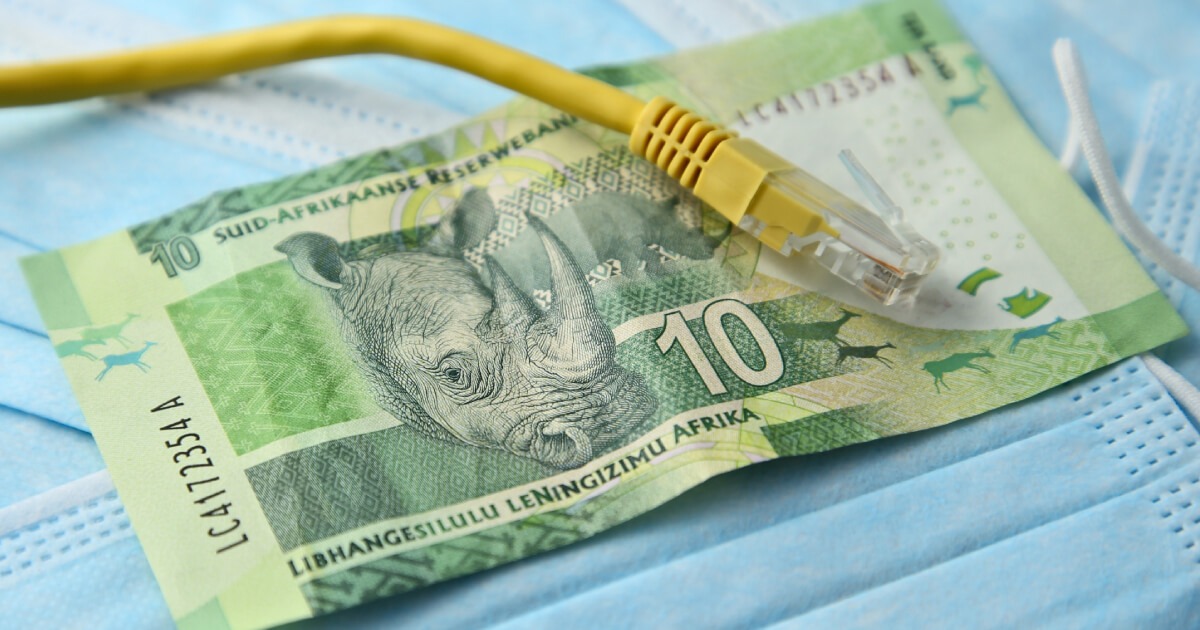
UPDATE: This article was originally published in April 2019, but due to its popularity it’s been updated on 30 July 2024.
The South African government offers a number of funding instruments for small businesses.
Ranging from grants to incentives, each offers some form of financial support for entrepreneurs, including:
- Full or cost-sharing grants are usually not repayable. Grants that are less than 100% require you to fund the balance of finance required for the project at hand.
- Incentives, these are actually grants in that you do not have to repay the money. However, unlike grants, where the money is provided for the service or asset, incentives are paid after the event has occurred. Tax Incentives mean that the business may deduct a certain amount from the money it owes in tax.
- The government also offers equity funding which means that the government funding agency buys a certain part of your business in return for percentage shareholding. The equity provides you with the finance to grow the business and the investor receives a share of the profits and a lump sum when they exit.
Various Relief Schemes were established to mitigate the impact of the COVID-19 pandemic on businesses. Relief schemes such as the COVID-19 Temporary Employer/ Employee Relief Scheme (TERS) were introduced to help SMEs avoid retrenchments and ease the financial burden on businesses, as well as help workers who lost income during the lockdown, according to the SA Government News Agency. To apply for TERS, the employer must be registered with UIF.
Below is a list of government funds available.
DTI
The Department of Trade and Industry (also known as the DTI) and its subsidiary agencies are involved in promoting economic development, black economic empowerment, implementing commercial law, promoting and regulating international trade, and consumer protection.
The DTI funding for small businesses is currently obtainable from the following four funds:
SEDA Technology Programme – the Seda Technology Programme (STP) is responsible for providing both financial and non-financial technology transfer, business incubation and quality support services for small enterprises.
Agro-Processing Support Scheme (APSS) – Launched in 2017, the Agro-Processing Support Scheme (APSS) incentive scheme is a R1 billion cost-sharing grant fund designed to boost investments in new and existing agro-processing projects.
Support Programme for Industrial Innovation (SPII) – designed to promote technology development in South Africa’s industry, through the provision of financial assistance for the development of innovative products and/or processes.
The Aquaculture Development and Enhancement Programme (ADEP) – a cost-sharing incentive programme for projects in primary, secondary and ancillary aquaculture activities
Export Marketing and Investment Assistance Scheme (EMIA) – aims to develop export markets for South African products and services and to recruit new foreign direct investment into the country.
The Sector Specific Assistance Scheme (SSAS) – a reimbursable cost-sharing grant that will pay for 80% of the costs incurred by (non-profit) export councils, joint action groups and industry associations to provide support to companies to grow the export market for South African goods.
R&D Tax Incentive – this incentive is available to businesses of all sizes and in all sectors of the economy, for research focused on science and technology as applied to any industry sector.
Black Industrialists Scheme (BIS)
This incentive programme aims to fast-track the participation of black industrialists in the South African economy.
Currently, the key focus is on supporting businesses that can accelerate economic transformation and with high job creation potential, including Blue/ocean economy, including vessel building and repair, Oil and gas, Clean technology and energy, Mineral beneficiation, Aerospace, Rail and automotive components, Industrial Infrastructure, Information communication technologies, Agro-processing clothing, Textiles/leather and footwear.
The scheme offers a cost-sharing grant ranging from 30% to 50% to approved entities, to a maximum of R 50 million. The total amount of the grant will depend on the level of black ownership and management control, the economic benefit of the project and the project value. Funds can be spent on any of the following items:
Capital investment costs include:
- Feasibility studies towards a bankable business plan (to a maximum of 3% of projected investment project cost).
- Post-investment support (to a maximum of R 500 000).
- Business development services (to a maximum of R 2 million).
- Other manufacturing activities may be considered based on economic impact in terms of job creation, geographic spread and strengthening supply chains.
See also: Requirements for Business Loan in South Africa in 2022
Green Fund
The R 500-million fund was launched by the national finance institution, the Industrial Development Cooperation (IDC), in 2011, with the aim of improving South African SMEs energy efficiency and the country’s green economic development.
The Green Energy Efficiency Fund (GEEF) supports projects that will provide significant energy savings and/or emissions reductions.
GEEF gives loans to entrepreneurs and businesses that want to invest in energy efficiency and renewable energy technologies. Priority is given to companies with yearly revenues of less than R51 million, with assets of less than R 55 million and employing no more than 200 people.
Loan amounts vary from R 1 million and R 50 million to enterprises with energy savings, or self-generation. The loans are extended by GEEF at prime less than 2% over a maximum tenure of 15 years.
While funding is not limited to any particular sectors – funding is given to businesses that are energy intensive including manufacturing, mining and agro-processing.
Tourism Transformation Fund
The Tourism Transformation Fund helps black-owned enterprises to benefit from South Africa’s growing tourism sector. Securing funding has been identified as a major obstacle to establishing new businesses and to growing existing tourism enterprises.
To address this challenge, the Department of Tourism has collaborated with the National Empowerment Fund to introduce the Tourism Transformation Fund, a dedicated capital investment mechanism that will support black investors and communities to develop and expand tourism related projects.
The Fund aims to drive transformation in the tourism sector directly. It is eventually expected to give rise to a new generation of black-owned youth, women and community-based tourism enterprises to take the tourism sector to new heights.
To qualify enterprises must provide services to tourists as their direct clients. The Enterprise must be at least majority (51%) black-owned.
The grant portion of the funding is capped at R 5 million per successful applicant.
Growth Fund
The Growth Fund is a grant fund specifically for growing South African small businesses who need a cash injection to scale up further and create jobs.
The Growth Fund is managed by CDI Capital, which was incorporated as a CDI subsidiary in 2016 to catalyse funding for SMEs. The funding has been enabled through contributions by the National Treasury’s Jobs Fund, the Technology Innovation Agency (TIA), and the Western Cape Department of Economic Development and Tourism (DEDAT).
The Growth Fund is open to South African-owned businesses who operate within South Africa, who are at least one year old with turnover or assets above R 1 million.
Each applicant must demonstrate their year on year growth and/or the potential for sufficient growth and must be tax compliant. Applicants also need to match 20% of the contribution of the Fund through a cash contribution to achieve agreed objectives. Importantly, the business must be able to create new jobs.
SMEs that meet the criteria for funding can apply online and are taken through a diligent process of selection and support. Successful applicants hereby receives a contract for a three-year intervention and disbursement plan, performance managed by quarterly reporting, oversight and inspection, bespoke mentorship, and business development support.
Technology Innovation Agency (TIA) – Seed Fund
This grant funding is only available to individuals who are working with a higher education institution or science council and are now looking to commercialise their research. The grants vary in size but can be up to R 1-million per project, although most grant allocations tend to be closer to R 200 000.
TIA’s primary objective with this funding is to increase the rate of commercialisation of viable intellectual property from South African technologies emanating from higher education institutions.
The grant funding is non-repayable and is provided to support projects run within a higher education institution (a level of outsourcing to third-party suppliers is permitted) or to spin-off companies that are based on IP emanating from this institution.
National Youth Development Agency (NYDA)
The NYDA provides grant finance in the form of micro-finance grants for survivalist youth entrepreneurship and co-operative grants for greater participation of youth in the co-operative sector.
The objective of the grant programme is to provide young entrepreneurs with an opportunity to access both the financial and non-financial business development support to establish their survivalist businesses. The programme focuses on youth entrepreneurs who are just coming into existence and are beginning to display signs of future potential but are not yet fully developed.
The grant finance starts from R 1 000 to a maximum of R 200 000 for any individual or youth co-operative. Young people interested in accessing the grant programme will have to commit to participating in the NYDA mentorship and voucher programme for a minimum of two years.
The program consists of both pre and post-approval assistance.
Industrial Development Corporation (IDC)
The IDC is a national development finance institution set up to promote economic growth and industrial development. They offer loan amounts of a minimum of R 1 million with a maximum of R 1 billion per project allowed.
Lending criteria includes start-up businesses, including funding for buildings, machinery and working capital for businesses operating in South Africa. Existing businesses can also apply for expansionary purposes. Over 50% ownership by persons under 35 years of age. Businesses must demonstrate economic merit and have prospects of acceptable profitability to be able to service their obligation. Broad-Based Black Economic Empowerment certification from an accredited verification agency, where applicable.
Priority sectors include Green industries (renewable energy, energy efficiency and waste management and recycling), agricultural value-chain, manufacturing activities (clothing, textiles, pharmaceuticals, plastics and chemicals), strategic high-impact projects (logistics industrial infrastructure, mining value-chain, tourism and high-level services, media and motion pictures, knowledge economy – ICT, and biotechnology).
Technology Venture Capital Fund – provides equity or debt funding to emerging technology-focused businesses to enable the conversion of technology-rich South African intellectual property into a market-ready product, and ultimately its commercialisation.
Automotive and Transport Equipment – fund provides a minimum of R 1 million (in the form of equity) to the manufacturer or the assembler of automotive and transport equipment to build global competitiveness.
IDC’s Strategic Business Unit (SBU) for clothing and textiles offers support to a variety of businesses across the sector, ranging from creators of home decor to leather goods producers, to manufacturers of natural or synthetic fabrics.
Chemical Products and Pharmaceuticals Fund – provides finance to stimulate the growth of the manufacturing sector (for chemical, plastics and pharmaceutical products).
Machinery and Equipment – this fund aims to improve the competitiveness of downstream manufacturing of machinery and capital equipment where it can be shown that the products have the potential to expand to new markets, as well as create new jobs. Funding is in the form of a minimum equity investment of R 10-million.
Youth Pipeline Development Program – an IDC Special Scheme business support and grant funding programme that assists potential applicants to improve the readiness of their proposal, and thereby increase their probability for IDC consideration.
Small Enterprise Finance Agency (Sefa)
Sefa is a joint venture and a consolidation of various funds including the Apex finance fund, KHULA and a contribution fund coming directly from the Industrial Development Corporation (IDC).
The maximum loan amount is R 5 million.
Lending criteria includes: businesses must show economic and financial viability (demonstrated or potential), must operate within the borders of South Africa. The fund only offers debt financing no equity instruments.
Priority sectors are young entrepreneurs in the following sectors: green industries, agricultural value-chain (agro-processing and primary agriculture – cash crops only), manufacturing, small mining value chain (mineral beneficiation), tourism, information technology and retail and wholesale of products.
Capacity building support is offered where needed.
NEF
The National Empowerment Fund (NEF) is established by the National Empowerment Fund Act, 1998 (Act No. 105 of 1998). The NEF is a driver and thought leader in promoting and facilitating black economic participation by providing financial and non-financial support to black empowered businesses and promoting a culture of savings and investment among black people.
The NEF provides business loans from R 250 000 to R 75 million across all industry sectors, for startups, expansion and equity acquisition purposes.
NEF funding is currently obtainable from the following four funds:
The NEF Women Empowerment Fund is aimed at accelerating the provision of funding to businesses owned by black women. The funding starts from R 250 000 to R 75 million across a range of sectors, for startups, expansions and equity acquisition purposes.
iMbewu Fund that supports black entrepreneurs wishing to start new businesses as well as supporting existing black-owned enterprises with expansion capital.
uMnotho Fund is designed to improve access to BEE capital.
Rural and Community Development Fund that supports growth and development in rural economies by financing sustainable businesses.
Strategic Projects Fund that is informed by government strategies and aims to support the government economic growth strategy.
Department of Small Business Development
The Department of Small Business Development was established in 2014 by the South African government to promote the development of entrepreneurship and to place SMEs and Co-operatives at the centre of economic growth and job creation. The ministry aims to increase SMEs and Co-operatives’ participation in local and international markets, and expand the contribution of SMEs and Co-operatives in priority sectors, and offer access to financial and non-financial support.
Here are some of the initiatives by the ministry:
Co-operative Incentive Scheme – The objectives of this initiative include promoting cooperatives through the provision of a matching grant, and assisting them to improve the viability and competitiveness of their enterprises by lowering the cost of doing business. To apply, you must be part of emerging co-operatives with a majority black ownership. Applicants must be the primary co-operative members (at least five people) and those who are historically disadvantaged individuals will benefit from this program. More info here
Spaza shops and General Dealers Support Scheme – The scheme launched in partnership with Nedbank in April 2020 to offer financial and business support to general dealers or traditional grocery stores that are based in townships and villages. The scheme provides access to working capital investment and revolving credit facilities, business management support, and legal compliance assistance. Applicants must have applicable licenses and permits, and the businesses must be 100% owned by South Africans. For more information about the program, spaza shop- and general dealer owners may call 0860 663 7867 or e-mail Spazasupport@dsbd.gov.za or visit the website www.dsbd.gov.za.
Additional information sourced from Finfind.co.za.
If you are looking for a quote, you can apply for funding from leading funding institutions on our webpage.



















